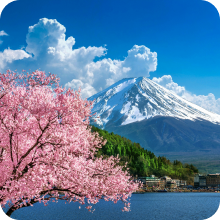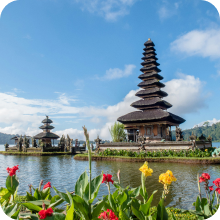Essential Japanese Phrases for Travelers: Your Quick Guide
Traveling to Japan is an experience like no other. The country is a mesmerizing blend of ancient traditions and cutting-edge modernity, offering travelers a unique adventure. But as enchanting as Japan is, navigating the language barrier can be a challenge, especially in areas where English is not widely spoken. Knowing a few essential Japanese phrases can make your journey smoother and more enjoyable. Let’s dive into the key phrases every traveler should know before setting foot in the Land of the Rising Sun.
Table of Contents
Basic Greetings and Polite Phrases
Hello and Goodbye
First impressions matter, and in Japan, a polite greeting goes a long way. Start with a cheerful “Konnichiwa” (こんにちは) for hello, and when it’s time to part ways, “Sayōnara” (さようなら) will serve you well. If you want to impress with a more casual goodbye, “Mata ne” (またね) means “See you later.”
Please and Thank You
Politeness is key in Japanese culture. “Please” is “Kudasai” (ください), and “Thank you” is “Arigatou” (ありがとう). For a more formal thank you, use “Arigatou gozaimasu” (ありがとうございます). You’ll hear these phrases often, and using them will earn you appreciative nods.
Excuse Me and Sorry
Getting someone’s attention politely is important, especially in crowded places. “Sumimasen” (すみません) means “Excuse me” or “Sorry,” and it’s incredibly versatile. Whether you’re squeezing through a crowd or need to apologize for a minor mistake, this phrase will be your best friend.
Navigating Transportation
Asking for Directions
Japan’s public transportation system is top-notch, but it can be a bit overwhelming. When in doubt, ask for directions with “Doko desu ka?” (どこですか?), which means “Where is...?” For example, “Eki wa doko desu ka?” (駅はどこですか?) asks, “Where is the station?”
Buying Tickets
Purchasing train or bus tickets might seem daunting, but knowing a few phrases can ease the process. “Kippu o kudasai” (切符をください) means “A ticket, please.” If you need to specify a destination, say the name followed by “made no kippu o kudasai” (までの切符をください), meaning “A ticket to [destination], please.”
Using Taxis
Taxis in Japan are clean and reliable, and knowing how to communicate your destination is essential. Simply say the destination name followed by “ni ikitai desu” (に行きたいです), meaning “I want to go to [destination].” If you have the address written down, showing it to the driver works just as well.
Dining Out
Ordering Food
Japanese cuisine is a highlight of any trip, and ordering food is half the fun. Start with “Menu o kudasai” (メニューをください) to ask for the menu. When you’re ready to order, “Kore o kudasai” (これをください) means “This, please,” while pointing to your desired dish. To ask for the bill, simply say “Okanjou o kudasai” (お勘定をください).
Dietary Restrictions
If you have dietary restrictions, it’s important to communicate them clearly. “Watashi wa bejitarian desu” (私はベジタリアンです) means “I am a vegetarian,” and “Gluten-free” can be expressed as “Guuten furii” (グルテンフリー). If you’re allergic to something, say “~ arerugii ga arimasu” (~アレルギーがあります), with the allergen in place of the tilde.
Common Restaurant Etiquette
When dining in Japan, a few phrases will help you navigate common restaurant etiquette. For example, before eating, say “Itadakimasu” (いただきます), which means “I humbly receive” and is a way to express gratitude for the meal. After eating, “Gochisousama deshita” (ごちそうさまでした) thanks the cook or host for the meal.
Thanks for visiting our blog, are you planing to travel to Japan? Check out our eSIM Japan.

Shopping and Payment
Inquiring About Prices
Shopping in Japan is a delightful experience, and knowing how to ask about prices is crucial. “Ikura desu ka?” (いくらですか?) means “How much is it?” If you’re looking for a discount, try “Makete moraemasu ka?” (負けてもらえますか?), meaning “Can you give me a discount?” (though this is less common in Japan).
Making Purchases
When making a purchase, you might need to ask for a different size or color. “~ wa arimasu ka?” (~はありますか?) means “Do you have...?” Insert the item or size you’re looking for at the start. For example, “Mサイズはありますか?” means “Do you have size M?”
Understanding Tax-Free Shopping
Japan offers tax-free shopping for tourists, and understanding how to navigate this can save you some yen. When paying, ask “Tax-free wa arimasu ka?” (タックスフリーはありますか?), meaning “Is there a tax-free option?” You’ll need your passport to qualify, so keep it handy.
Emergency and Medical Situations
Seeking Help
In case of an emergency, it’s important to know how to ask for help. “Tasukete kudasai” (助けてください) means “Please help me.” If you need to call an ambulance or the police, say “Kyūkyūsha o yonde kudasai” (救急車を呼んでください) or “Keisatsu o yonde kudasai” (警察を呼んでください), respectively.
Describing Symptoms
If you’re feeling unwell, being able to describe your symptoms is crucial. “Watashi wa byouki desu” (私は病気です) means “I am sick.” To explain specific symptoms, say “~ ga itai desu” (~が痛いです), with the part of your body in place of the tilde, such as “Atama ga itai desu” (頭が痛いです) for “I have a headache.”
Pharmacy Essentials
When visiting a pharmacy, it’s useful to know how to ask for common over-the-counter medications. “Kusuri wa arimasu ka?” (薬はありますか?) means “Do you have medicine?” To specify what you need, use terms like “Kaze gusuri” (風邪薬) for cold medicine or “Itami tome” (痛み止め) for pain relievers.
Cultural Etiquette Phrases
Introductions and Formalities
Introducing yourself in Japan is more than just a formality; it’s a sign of respect. “Hajimemashite” (はじめまして) means “Nice to meet you,” and is often followed by your name. To say “My name is...” use “Watashi no namae wa [Your Name] desu” (私の名前は[Your Name]です).
Visiting Temples and Shrines
Japan’s temples and shrines are places of deep cultural significance. When visiting, it’s important to be respectful. Before entering, bow slightly and say “Osore irimasu” (恐れ入ります), which is a polite expression used in formal situations. When leaving, a simple “Arigatou gozaimashita” (ありがとうございました) to the staff or monks is appreciated.
Understanding Japanese Customs
Familiarizing yourself with Japanese customs can greatly enhance your experience. For instance, when entering someone’s home, say “Ojama shimasu” (お邪魔します), meaning “I’m intruding” or “Thank you for having me.” When leaving, “Ojama shimashita” (お邪魔しました) expresses gratitude for the hospitality.
Before you take off make sure to check with local government of the travel status.
FAQs
Do I need to be fluent in Japanese to travel in Japan?
No, basic phrases and gestures are usually enough, especially in major cities.
Is English commonly spoken in Japan?
English is spoken in major tourist areas, but knowing basic Japanese is helpful, especially in rural areas.
What’s the best way to learn Japanese phrases for travel?
Use language apps, phrasebooks, or take a basic Japanese course before your trip.
Can I use translation apps in Japan?
Yes, translation apps can be very helpful, especially for more complex conversations.
Are Japanese people patient with foreigners trying to speak Japanese?
Yes, Japanese people are generally very patient and appreciative of any effort to speak their language.















